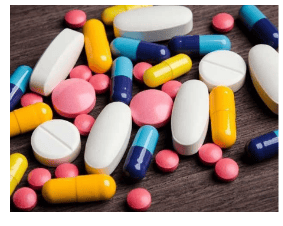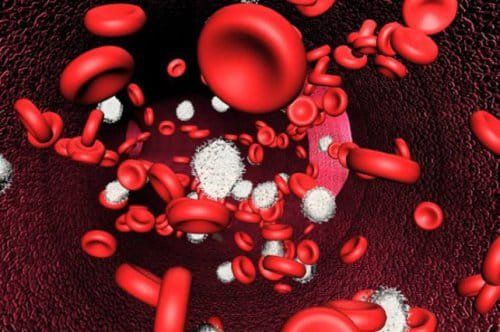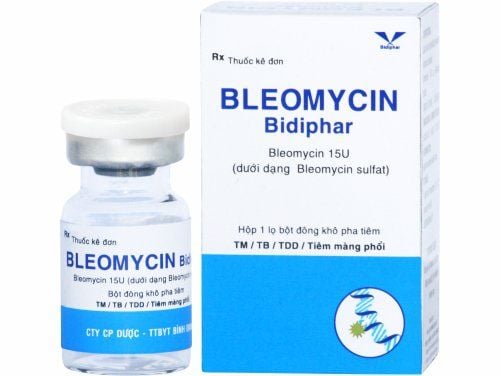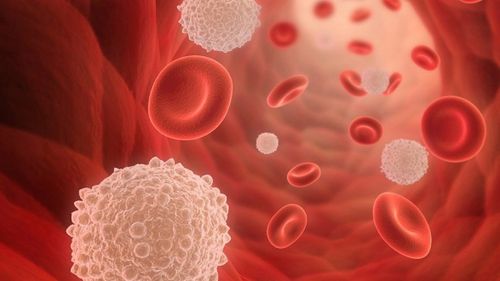This is an automatically translated article.
The immune system is a powerful weapon of the body to help fight infections. However, people who have cancer or are undergoing cancer treatment are often at a very high risk of infection due to a weakened immune system. This can seriously threaten the patient's life if not detected early and treated promptly.
1. Preventing infection in cancer patients
Here are some things that cancer patients should keep in mind to effectively prevent the risk of infection and disease when the immune system is gradually weakened by cancer or cancer treatments:
Wash your hands often with soap and warm water. Make sure to wash your hands before eating and before touching your face or mucous membranes (eyes, nose, mouth,...) adding or touching items used by others Wash your hands after touching animals, picking up trash, and taking out trash Bring alcohol-based hand sanitizer to clean your hands when you go out Clean surfaces contact, such as doorknobs, keyboards, etc. Avoid large gatherings, such as schools, tourism, shopping malls, social and community events. In case of mandatory, you should wear a mask when going out. Avoid contact with anyone who has a fever, flu, or other infections Get a flu shot every fall and encourage other family members to get vaccinated. However, cancer patients should not receive the nasal spray flu vaccine. Shower daily, pay special attention to cleaning parts such as feet, hands, armpits, groin and other wet, sweaty areas Wear gloves when gardening and wash hands immediately after brushing teeth 2 times/day with a soft brush. Alternatively, you can also use an alcohol-free mouthwash to clean your mouth after eating.

Rửa tay thường xuyên bằng xà phòng giúp ngăn ngừa hiệu quả nguy cơ nhiễm trùng
Keep the groin and anal area clean. Use a soft damp tissue in the form of a disposable baby wipe after going to the bathroom or whenever you feel irritated or itchy. Also, tell your doctor if you have bleeding, redness, or swelling in these areas. Do not swim in ponds, lakes, or rivers Wear shoes often when outdoors to avoid injury and prevent bacteria from entering the body through the feet Use an electric shaver instead of a regular razor to avoid scratches Scratches or cuts can cause infection. In addition, you should not share the shaver with other people. If you cut your hand or scratch your skin, clean the area immediately with soap and warm water. Then cover the injured area with a clean bandage. Prevent constipation and strain by drinking water regularly every day. Besides, regular exercise to strengthen the body's resistance. Do not put anything in the rectum, including douches, use thermometers, or suppositories Women with cancer should not use vaginal suppositories or deep douches to prevent infection water-based lubricant during sex to avoid injury or abrasion to the skin and mucous membranes. Besides, you should also use condoms to reduce the risk of STIs. Do not leave fresh flowers in your bedroom. Do not share towels, drinking glasses with anyone. including family members Stay away from chicken coops, caves, and any dusty places, such as construction sites. To prevent the risk of infection, cancer patients need to be closely monitored for detect signs and symptoms of infection early, and notify your doctor immediately for prompt treatment.

Bệnh nhân cần thông báo ngay với bác sĩ khi thấy triệu chứng của nhiễm trùng
2. Food safety tips for people with cancer
Infection can be transmitted from food and drink, so food safety is extremely important for cancer patients whose immune systems are weaker than the general population.
You can consult a nutritionist about a special diet during cancer treatment. In addition, pay attention to clean hands before handling any food, and ensure that all meat products (including chicken, beef, ...) are cooked. Cooked thoroughly to kill the bacteria present.
In addition, fruits and vegetables can also contain a variety of disease-causing bacteria, so people with a weak immune system should not eat any fruits or vegetables that have not been cleaned to prevent risk of infection. Even peeled fruit should be washed thoroughly before eating, as germs can get into the inside of the fruit when it's peeled.
And yet, cancer patients can also lower their risk of infection by avoiding raw vegetables or salads. If you want to enjoy these dishes, it is best to prepare them cleanly and ensure food safety before eating.
3. What drugs are used to prevent infection during cancer treatment?
Sometimes, doctors can still prescribe drugs for cancer patients when their immune systems are weakened even though there are no signs of infection. The following are drugs that help prevent infection for patients undergoing cancer treatment:
*Prophylactics: these are drugs that fight bacteria, viruses, or fungi that can be used to prevent infection. coincide. For some prophylactic antibiotics will only be used when the patient is at very high risk of infection (severely weakened immune system). In addition, you may also be given antibiotics if you are taking other medicines that can weaken the immune system, such as long-term steroid treatment or certain chemotherapy drugs.

Người đang điều trị ung thư có thể sử dụng thêm thuốc để ngăn ngừa nhiễm trùng
Prophylactics will be stopped when your immune system has returned to a relatively stable state, usually some time after stopping the immunosuppressant. However, antibiotics alone will not prevent all infections. Therefore, cancer patients need to combine other similar precautions and notify their doctor when any signs of infection occur.
* CSFs: Normally, growth factors include proteins that the body makes to help blood cells grow. They are also known as monoclonal growth-stimulating factors (CSFs) or myeloid growth factors. The growth factors stimulate the bone marrow to produce more white blood cells to help the body fight infections. Several artificially injectable CSF drugs are commonly used after cancer patients undergo chemotherapy. In addition, doctors may also give patients a lumbar puncture if their immune system is weakened and the infection is getting worse despite being treated.
Several common CSF drugs are used today, including filgrastim (Neupogen ® ), pegfilgrastim (Neulasta ® ), and tbo-filgrastim (Granixe ® ). Although growth factors can cause some side effects, they have the potential to significantly reduce the risk of infection in cancer patients.
4. Monitor for signs of infection in cancer patients
Some cancer treatments and the cancer itself can change a patient's white blood cell count (WBC). When the number of white blood cells in the blood decreases, the risk of infection is much higher than normal. At this point, you will need to closely monitor for signs of infection so that you can get timely treatment.

Lượng bạch cầu trong máu giảm có thể là dấu hiệu nhiễm trùng tiến triển cao hơn
Symptoms of infection to watch out for include:
Fever Some areas of the body are red, sore, or swollen Purulent or yellowish discharge from the wound Cough and difficulty breathing Abdominal pain Chills, tremors accompanied by sweating Burning or pain when urinating Sore throat Having sores or white patches in your mouth If you have any of the symptoms listed above, get medical attention right away.
Department of Internal Oncology, Center for Oncology - Radiation Therapy, Vinmec International General Hospital is one of the reliable facilities in the treatment and palliative care for cancer patients. With a team of doctors and nurses who are experts in the treatment and palliative care of cancer patients, it will help the life of terminal cancer patients become lighter and more meaningful.
If you have a need for consultation and examination at Vinmec Hospitals under the national health system, please book an appointment on the website for service.
Please dial HOTLINE for more information or register for an appointment HERE. Download MyVinmec app to make appointments faster and to manage your bookings easily.
References: cancer.org
See more:
The latest cancer treatments in the world Notes when treating cancer Stem cell transplantation for cancer treatment













